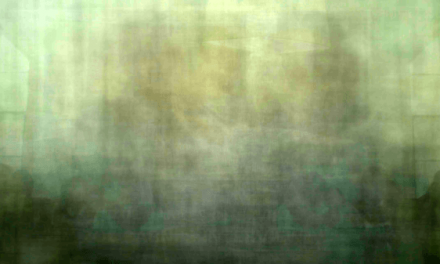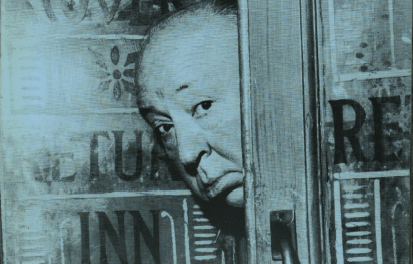Doctor Who fans were perhaps expecting a slow 2015. As Steven Moffat said himself in a recent interview with The Radio Times, “This year is not a new Doctor year, it’s not an anniversary, or a new companion year … it’s dangerous when you don’t have that special extra bit to launch a show with.”
While the sonic changes from screwdrivers to sunglasses got most of the press attention this year, this year’s use of music in the show was much more exciting. If you’re a sound nerd like me, the music was more than a little sexy, too.
The whole series has been another rich sound delight. Heaven knows how composer Murray Gold continues to produce such quality as well as quantity. In particular, the last two stories, Heaven Sent and Hell Bent, were exceptional from a sound, particularly music, point of view.
Heaven Sent was a Doctor-only story, set up as “a whole place designed to terrify [him]”. While the visuals clearly did this, including the very creepy and much talked about twisted time travel and haunting images of Clara, the musical snippets to hauntings past were just as vivid. While the wonderful orchestral and new rock-inspired soundscape was present, mixed in where sounds from early Doctors, all with a distinctly Radiophonic feel. As the makers describe, it was about making a story that had difference pacing, however the connection back to older types of sound scapes –less melodic ones, less organic ones, was really rewarding for a long time fan. No doubt, intriguing for newbies, too.
The music in this relatively minimalist story was fundamental to making the audience feel the character’s sense of claustrophobia. And given he was running from his own demons, and this is a man who has demons from many eras and with many faces, the sonic nod back to the soundtracks of the past just added to the timey-whimey scariness. Although the final credits don’t acknowledge any of the composers from the older series (icons like Dudley Simpson and Mark Ayers), listening again to the episode and to some ‘classic’ medleys makes their sonic influence clear.
Series finale, Hell Bent, took musical time and space travel to a new level again. Capaldi’s wonderful rock and roll Doctor enters an American diner with an electric guitar and not much else. As he chats to the waitress (the face we recognise as Clara, but one that he doesn’t connect up to), he plays a tune that he shouldn’t really know. It’s a simple melody that doesn’t jump too much, almost fairy tale-like in its pacing and structure, and it’s the tune that has been repeated during key parts of Clara’s storyline since we first met her during Matt Smith’s Doctoring days.
The tune, called “Clara’s theme” is a piece that Murray Gold has used in the non-diegetic (that is, world beyond the character’s world) soundtrack, music that’s used in the score for us the audience rather than them, the players on screen. Having The Doctor know the tune, let alone play it, is something that should never really happen – it would be like if The Doctor came into a room singing his theme tune. Theme tunes are for the television viewer, not for those who live in the television (as it were). Yet, when The Doctor plays this tune on screen, it’s arresting, simple, and an excellent nod to reward faithful viewers (and listener).
The focus of the episode is not Clara at all, but rather The Doctor’s return to Gallifrey. However the music draws us into what might happen next – reminding us that The Impossible Girl might have even cheated death, and The Doctor has been able to somehow survive a memory loss. By breaking this soundtrack forth wall, letting The Doctor and Clara hear and play music that was not meant for them to hear, the show again breaks with convention. This little Who and screen sound fan was thrilled.
Dr Liz Giuffre is a lecturer and researcher in Media, Music and Cultural Studies at University of Technology, Sydne, Australia. Her work focuses on music and television in particular, including audience studies, fandom, cultural history and cultural industries in transition.




